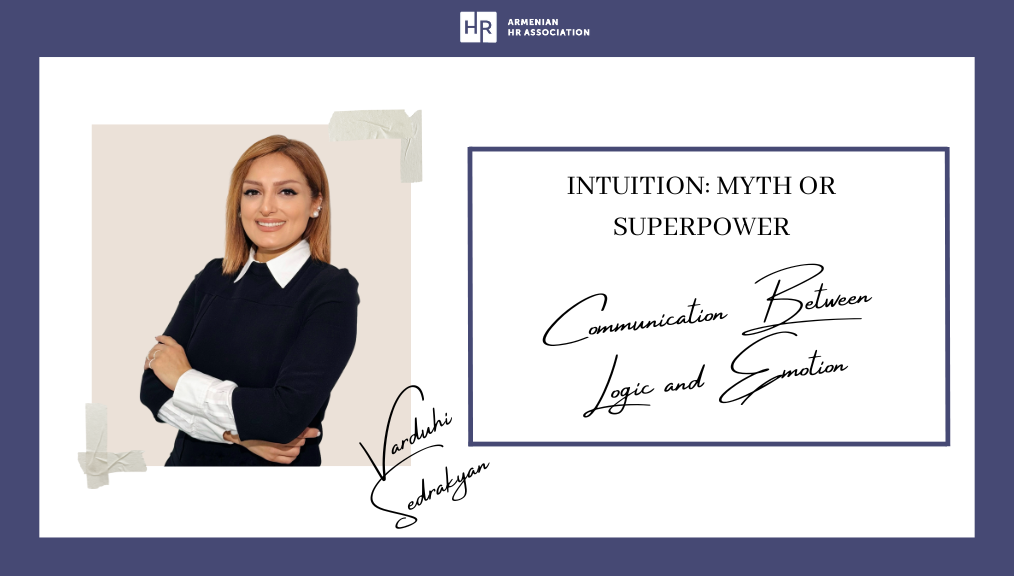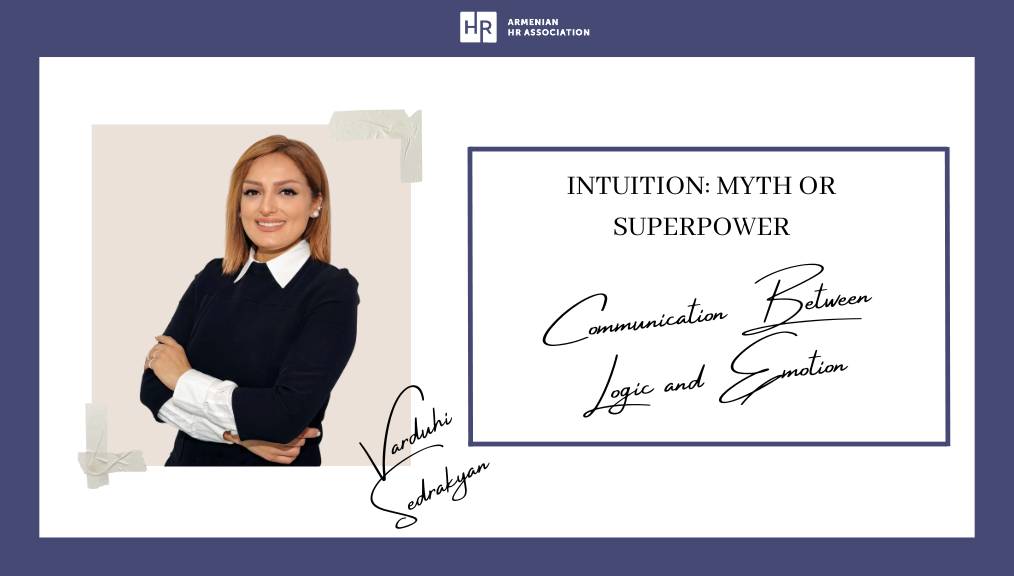- September 10, 2025
- Posted by: Admin HRCommunity
- Category: Blog


Was Oprah Winfrey right, a woman who has been guided by intuition in almost all of her success? Was that intuition, which has taken her to all possible heights – one of the most influential women in America, TV mogul, producer, philanthropist, – an instinct, 6th sense, mental ability, sudden feeling, accumulated experience, or something else? Let’s find out.
If I had been asked this question a year ago, I would have quickly assumed that intuition was just a gut feeling, an emotion, or even something mystical, because by and large it had never occurred to me to study what intuition is. However, the past year was incredibly intense for me, filled with constant changes both in my new workplace and in my life overall. I had to make rapid decisions and to my surprise, I was consistently right. Sometimes I often wondered how I was able to navigate situations so quickly. I credited it to my naturally strong intuition, but soon realized that in new, unfamiliar situations I recognize patterns and these patterns are not accidental, but have some kind of storage. Later on, I found out: the decisions that I attributed to my intuition were nothing more than data stored in our subconscious. Our intuitive decisions are influenced by the patterns we’ve recognized through past experiences and the information we’ve gathered. And by absorbing patterns over time, our intuition sharpens, leading to faster and more accurate decisions. Thus we can prove that our intuition is not opposed to data, it is based upon data.
In general, we often hear that women have a strong sense of intuition․ This heightened intuition is influenced by specific hormones and the uniquely structured female brain. The bridge between left and right hemispheres of our brain, is thicker, so communication between logic and emotion is better developed. And the predominance of the key hormones: estrogen and oxytocin also contribute to a more developed intuition.
I believe that women’s ability to make skillful, intuitive decisions is greatly enhanced also by their experience as mothers. From the moment a child is born, mother continuously gathers and stores vast amounts of unique data through her interactions with child. This accumulated knowledge later proves invaluable in various aspects of life, including family, the workplace, management processes, etc.
It may seem paradoxical, but in today’s data-driven world, we have to rely on intuitive decisions a lot. While analytical decisions are more grounded and reasoned for us, but at the same time slow and require a lot of effort, intuitive decisions are fast, effortless, though in some cases prone to biases. Yet in our fast-paced world, in our rapidly changing workplaces, we often have to make very quick decisions and to rely on intuitive decisions.
Moreover, analytical data does not always provide a clear picture—it can be incorrect, incomplete, or overwhelming due to its sheer volume, sometimes leading to inaccurate decisions. Most importantly, data alone often lacks the essential element of human insight.
In the end, all things considered, I encourage each of us to actively develop our intuition by enriching our minds and experiences. I’m sure many of you here are HR professionals, and we all have the ability to foster this mindset in our workplaces. By introducing it to our colleagues, managers we can demonstrate that, alongside analytical decision-making, intuition also plays an important role. Blending intuitive insights with analytical judgments, will lead companies’ strategic decisions more dynamic, insightful, agile and human-centered.
Take these thoughts with you, hope my speech has provided you with small, yet meaningful insights to think about and to intuit—whether intuition is merely a myth or a superpower.
Article Author: Varduhi Sedrakyan
DisruptHR Yerevan 2025
